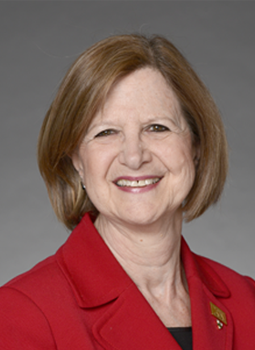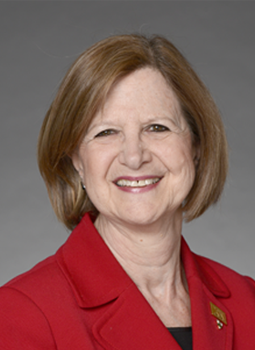When I joined RNAO as executive director in April 1996, our association was not engaged in advocacy about the impact environmental and social determinants of health have on people’s lives and health outcomes. Although we had some amazing role models in nursing, RNAO as a whole was sitting on the sidelines. Wanting to change that reality required staff with targeted policy expertise. Kim Jarvi, an economist, joined RNAO in 1998 and has since contributed robust fiscal knowledge and an intense passion for environmental issues. We were also fortunate to attract Dr. Lynn Anne Mulrooney to join our policy team. An RN with a PhD in political science and in-depth knowledge of social conditions, Dr. Mulrooney was my guru until she retired in 2019.
The vital work of Kim and Lynn Anne helped us mark the beginning of our journey to build environmental and social determinants into the fabric of RNAO’s policy and advocacy work. This practice continues under the leadership of Matthew Kellway, our director of nursing and health policy, and an awesome team of experts. With full support from our board of directors, we continuously draw attention to these issues, because we want to make meaningful and impactful gains for Ontarians. And, this can only happen if both environmental and social determinants of health are improved.
Many conversations have brought us to the rich expertise RNAO has today. At one of my first meetings with our board in 1996, I shared my personal and professional view that nursing is first and foremost about keeping people healthy. This is the perspective we bring as nurses and who we are as a profession. Our second goal – also very important – is to help people regain their health if they are ill, or to assist with a peaceful death if life is no longer an option. But, when poverty and illness lead people to despair that their only choices are to suffer from poor health or to die – as we are hearing recently in the news – it is unacceptable and as nurses we are called into stronger action to end poverty.
Today, we are consumed by a deepening nursing human resource crisis. Back in 1996, health human resources was the main focus for RNAO given the exodus of nurses to work in the U.S. – a reality all too familiar today. And while our advocacy on the #NursingCrisis was as critical then as it is today, we must also redouble our efforts to reflect and act on securing the conditions of life that lead to health, including a roof over people’s heads, money to pay for rent, food and medications, and a universal health system everyone can access in a timely manner and free of bills.
I am so very proud of RNAO’s in-depth work, growing catalogue of resources, initiatives and expanded expertise on environmental and social issues over the last 25 years. We have built a robust, evidence-based understanding that is second to none. Our work shows how the impacts of inaction and complacency in environmental and social determinants of health cause ill-health. And the solutions we lay out in our election platforms and other policy work speak about our present and our future – because both depend on our actions today.
I am so very proud of RNAO’s in-depth work, growing catalogue of resources, initiatives and expanded expertise on environmental and social issues over the last 25 years.
This special issue of RNJ focuses on the passionate work led by RNAO members in the thousands who, bolstered by the association, are leading change. RNs, NPs and nursing students are working diligently every day to ensure the health of their patients and Ontarians is seen through the comprehensive lens of nursing practice, which for the past two decades has consistently included environmental and social determinants. These determinants of health are tied to so many inspiring and important initiatives led by our members through a fire in their belly that comes from deep within. It’s a remarkable thing to see, and a flame that RNAO promotes and nurtures.
In light of the challenges of the pandemic, I’m often asked how RNAO maintains the energy and motivation to do our work even though we have not seen the kind of progress that would match our tireless efforts and the gravity of environmental and social realities. The answer is simple. RNAO has no choice but to continue to pursue environmental and social improvements for Ontarians. These are not matters that can wait. People and communities are suffering.
So, RNAO provides a source of energy for our members, despite the challenges. Indeed, we find motivation through addressing the challenges. We turn frustration into action by mobilizing collective sources of energy, knowledge and humanity. And we do that with staff who have the expertise, passion and time to give members what they need on the frontlines, in classrooms, boardrooms and streets.
Imagine you’re with a group of friends and each has a negative outlook on the future – unable to see the light at the end of the tunnel. You can’t derive energy from that. But if everyone is motivated to drive positive change and wants to work together – while also seeing the challenges and wanting to work through them – our collective energy is limitless and contagious.
This is what RNAO has become. A friend who is always there to push you harder and further – for yourself, for our amazing profession, for Ontarians in health and in illness, and for future generations.
I am ecstatic about the work reflected in this issue of RNJ. The lived experiences of members – some extremely painful – and their willingness to share should inspire us all. Learn more about this impressive work in this issue of RNJ, and look to RNAO to keep pushing and to stay motivated as we continue to advocate for change.


